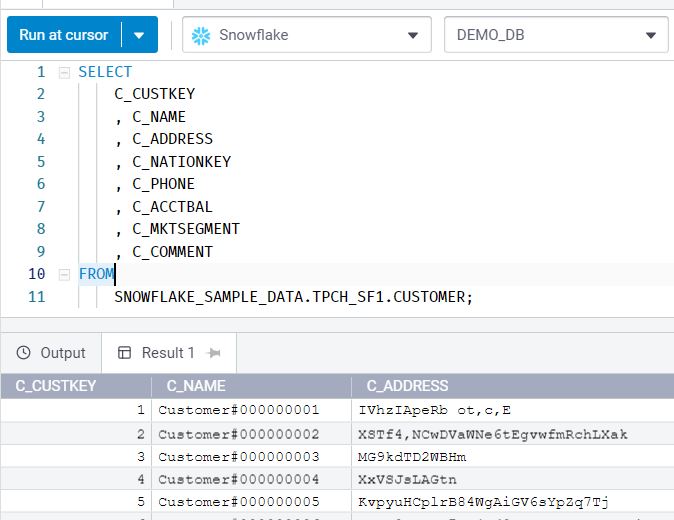
#Best sql editor for vs code code
First, get to know your dataįamiliarize yourself with your data before your write a single line of code by studying the metadata to make sure that a column really does contain the data you expect. Then we’ll talk about three essential tools to add to your utility belt: INDEX, EXPLAIN, and WITH. We’ll review the general order of query execution, and include tips along the way to reduce your search space.
#Best sql editor for vs code how to
Consequently, much of the advice about improving the efficiency of queries is simply about showing people how to use the tools in SQL to articulate their needs with more precision. Instead of telling the database how to retrieve records, you need only tell the database which records you need, and the database should figure out the most efficient way to get that information. Part of SQL’s beauty is its declarative nature. Make your haystacks as small as possible before searching for your needlesĪrguably, we’re already getting into optimization here, but the goal should be to tell the database to scan the minimum number of values necessary to retrieve your results. In general, prioritize accuracy (does the query produce the intended results), and readability (can others easily understand and modify the code) before worrying about performance. And even then, only prioritize optimizing your query if it’s run frequently (like powering a popular dashboard), or if the query traverses a large number of rows. Avoid tuning your SQL query until you know your query returns the data you’re looking for. The standard warning against premature optimization applies here. Correctness, readability, then optimization: in that order Most of our discussion will concern SQL in general, but we’ll include some notes on features specific to Metabase that make writing SQL a breeze. This article covers some best practices for writing SQL queries for data analysts and data scientists. With Metabase, you don’t even have to use SQL.Organize your queries with Common Table Expressions (CTE).Avoid sorting where possible, especially in subqueries.Only use HAVING for filtering aggregates.Order multiple groupings by descending cardinality.Avoid bookending wildcards in WHERE statements.Avoid functions on columns in WHERE clauses.Make your haystacks as small as possible before searching for your needles.Correctness, readability, then optimization: in that order.This is a powerful extension that allows you to see who, why, and how lines of code have changed over time, it helps you to visualise code authorship at a glance via Git blame annotations and code lens, seamlessly navigate and explore Git repositories, and a whole lot more.īenefits: helps you to better understand your code, allows you to effortlessly explore the history and evolution of a codebase. GitLens is an open source extension that combines the capabilities of Git with VS Code. Open-source, vscode, settings-sync, vscode-sync, programmer productivity

Settings Sync allows you to sync pretty much everything you customise in VS Code, from snippets, themes, icons, launch, keybindings, workspaces and even other extensions across multiple machines.īenefits: saves you valuable time, gives you access to your preferred IDE from any device. We’re starting with this handy extension first as it will save you time if you decide to try out any of the following. Continuing on from this, we've put together this list of handy VS Code extensions that we think will think will spruce up your coding life - all from your favourite IDE. If you're familiar with Ponicode, then you know that our philosophy is based around making developers lives easier and being the best partner to developers that we can possibly be.


 0 kommentar(er)
0 kommentar(er)
